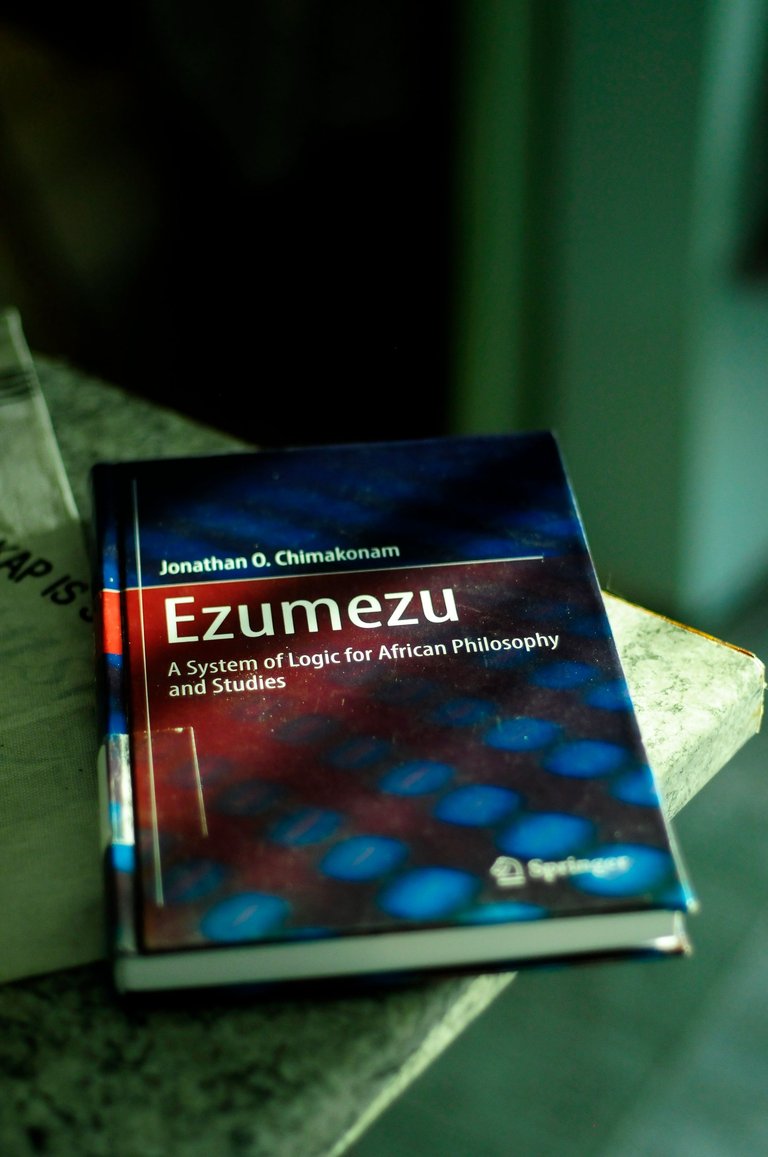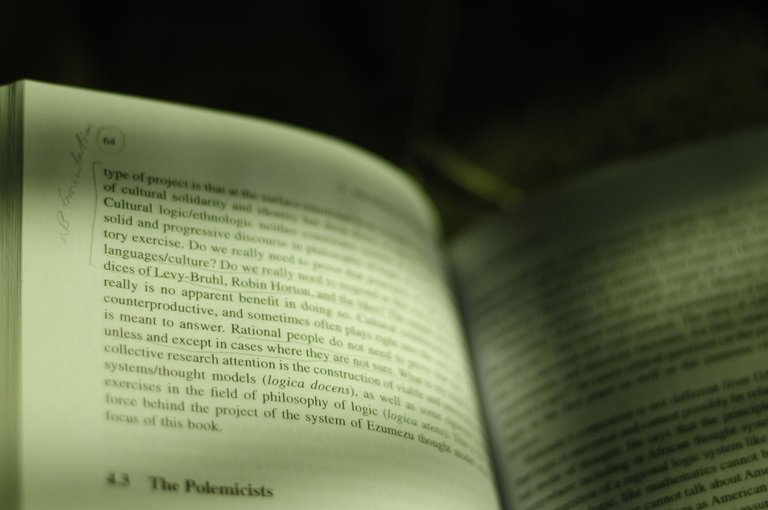African philosophy is an interesting field of philosophy as soon as you enter the space. Much has been debated about what exactly African philosophy is, especially in two senses of the term/word/concept: How is African philosophy philosophy? and How is African philosophy African? Both these questions are wholly rooted in a tremendously racist framework in which western philosophy is taken as the paradigmatic example of what constitutes philosophy, and that western philosophers carry the sceptre that allows them to dictate what exactly can be called philosophy and so on. Western philosophy is oftentimes – in fact more often than not – labelled as philosophy. Islamic, Chinese, African, and all of the other traditions are always labelled as X philosophy. It is rarely the case that philosophy from Africa, done by an African philosopher is classified philosophy, unless they are partaking in the dominant conversation happening in academia – think studies on the sublime of Kant, the Logic of some obscure analytic philosopher, and so on.
This is the context in which African philosopher, or Conversational philosopher, Jonathan O. Chimakonam is writing. He is a prolific writer, having more than 50 publications behind his name. One of the more recent book-length publications comes to us in the form of Ezumezu: A System of Logic for African Philosophy and Studies. This is an incredible publication, laying the foundation of what is probably some of the more important work being done in promoting African philosophy, and in this case, African logic.
But in all honesty, it is also a very hard book to get through. Partially because I am not well versed in logic as such, but also because the author struggles to get to the logic part. In this philosophical review of kind, I will try and justify this point. Philosophy is notorious for its sometimes dry and academic language, but also the style in that points are laboured to extreme lengths to get a minute and small point across. (I myself have been through this process, where I tried to cover all of the angles to the detriment of the reader. And this is not an easy task, because some reviewers will crucify you as philosopher if you do not cover all possible weak spots and angles, but others might crucify you because you took too long to get to the point. I am guilty of this in many ways.)
On to the review.
The book has two parts. In the first part, the author gives an incredibly lengthy discussion regarding the history of African philosophy, and setting the context for the reader to understand why there is this importance to provide an African logic system. In the second part, the author provides us with the very logic system he promised us throughout part one of the book.
Part one of the book consists of five chapters, ranging from historical figures in African philosophy, to discussions on the schools to which these historical figures belong. This first five chapters of the book is incredibly important not just for his logic system and the context, but also because of the arguments he begins to make in them. One of the most important, to me at least and my own research, is what Chimakonam calls the villagisation of knowledge. Through this idea, Chimakonam begins to tell us about the idea of philosophical villages, where knowledge is not just in the hands of a select few, but in the hands of a collective, a society through which horizontal conversations are held, which inspires more conversations, and so on. The interesting thing about the villagisation of knowledge is also that Chimakonam asks of us to think about the role of the general public in philosophising as well. For a long time, philosophy has been locked up in the ivory tower of academia, but this was not always the case. And now in African philosophy, Chimakonam wants us to include the general public, the non-philosopher, to partake in the philosophising process. I find this argument incredibly important for my own work, so I might be a bit biased in this aspect, but I think there is some merit in the argument.
Part two of the book consists of six chapters, focussing mostly on his Ezumezu logic system. For those well verse in Western and Aristotelian logic, this system might sound like heresy. Chimakonam asks of us to relax the strict and rigid logic of Aristotle, so that he can introduce his Ezumezu logic. Aristotelian logic usually promotes three cardinal rules, the law of non-contradiction, the law of identity, and the law of the excluded middle. In short, the law of non-contradiction states that if A then A cannot not be A (A ≠ not-A); the law of identity states that if A, A will be A (A=A); and the law of the excluded middle states that A cannot both be A and not-A. (This is oversimplified and might even be a bit incorrect, but I am no logician, so do not quote me on this.) Ezumezu logic, according to Chimakonam’s work, makes these laws a little bit lax, to include the excluded middle. Moreover, the logic system is based on contextualism, with a catchphrase of some sort being that contexts upset facts. That is, in specific contexts, a statement can be true and false at the same time. Chimakonam’s favourite example of this is the idea of a person drowning in a river. For this person, the statement “A person needs water to stay alive” cannot be true, but in a different context, the person being in the desert, this statement is true. According to Aristotelian logic, a statement cannot be true and false, moreover, it cannot be true and false at the same time. But in African logic, according to Chimakonam, this is allowed; whereas it is a contradiction in Aristotelian logic, it can be valid in African logic.
The reason for providing this logic system is important. For a very long time, Aristotelian logic was used to (and is in many cases still used to) judge others especially other cultures. It is also the dominant framework used to justify if something is good or bad, valid or invalid, and so on. So, the critique from Chimakonam, and with which I wholeheartedly agree, is that one cannot judge the veracity of a philosophy by using a different logic system. It would be like to judge a fish’s ability to climb a tree. By using, in this case, Aristotelian logic to judge if something is a good African philosophy, is akin to trying to judge a fish’s tree climbing abilities. There might be cases in which something works, for example, the African philosopher Paulin Hountondji’s work on African philosophy, but Chimakonam’s own conversational school of philosophy’s work might be excluded and marginalised by using Aristotelian logic.
In the end, the book is eye opening, incredibly complex, and provides the reader with something incredibly interesting and different to most of philosophy practiced today. Is this book for the general public? Not at all, the cost alone will deter so many from reading it. (Amazon lists is at $60.00 USD and on Springer – the publisher – it is listed close to $70.00 USD.) Should the public read this book? Probably not, because the style is dry and academic. Each chapter strangely enough starts with an abstract, an introduction, and after the discussion a conclusion. It reads very similar to a PhD dissertation. Will the public benefit from this work if it came in a more digestible format? For sure. I think this book contains so many great arguments that if they are dressed in less formal clothes, the book might actually really help the general public to understand African philosophy, the dilemma of its existence, and the brilliant work being done. Not only this, some people might actually find it inspiring to delve into either other African philosophy, or to use this logic in their own life.
But much water still needs to flow into this ocean, and I hope to be a part of this. My own research heavily relies on Chimakonam’s work, which I want to “translate” (read: digest) into a format not only understandable to the public, but potentially inspiring.
I hope that you gained some new perspective from this book review, although it is a bit on the more niche philosophy side of things.
For now, happy reading, and keep well!
All of the writings and musings in this post are my own, albeit based on the work of Chimakonam. These thoughts are also my own subjective opinion. The photographs are my own, taken with my Nikon D300.
The Fermented Philosopher's Library
| 🕮 The Book of Malachi | 🕮 The Outsider | 🕮 A Clockwork Orange | 🕮 Perfume |
|---|---|---|---|
| by T.C. Farren | by Stephen King | by Anthony Burgess | by Patrick Suskind |
| 🕮 The Uninvited | 🕮 Life Is Elsewhere | 🕮 Philosophy as a Way of Life | 🕮 The Space Between the Space Between |
|---|---|---|---|
| by Geling Yan | by Milan Kundera | by Pierre Hadot | by John Hunt |
*Edit: Broken link added.





Haven't had any encounter with African philosophy so this was very interesting to me, thank you.
I am so glad that it was interesting! I should invest some more time in writing about African philosophy then! Keep well and thank you so much for the read!
This was an interesting review of an African Philosopher. They are quite rare around here and hope others find this review helpful and as a guide to explore more of African philosopher. By the way, don't forget to engage and if you enjoy being part of our community, please support us by upvoting or delegating to our @hivebookclub account. Your support is deeply appreciated!
Thank you so much, I really appreciate it! For sure, I always try to engage as much as possible, even though I know I can do more. Thanks for the reminder! Keep well, and thanks for keeping the community of book readers active!
I've actually come across African philosophy from Youtube Thumbnails/Recommendations through the algorithm but never really clicked on the video itself.
Really nice to come across this post about this topic that not many people are really familiar with like myself.
As someone who's still in my infant stages of self-studying philosophy, I might check out African philosophy in-depth after understanding more of the modern philosophers like the rationalists, empiricists, Kant, Schopenhaur, Nietzsche and the others!
I am glad that you found it interesting! It is such a vast field itself already. Crazy how much has been published on philosophy just in general around the globe. If you ever venture deeper into it, a great starting point is the article on "African Philosophy" on the "IEP" or Internet Encyclopedia of Philosophy. A quick google search will take you there. I hope that your journey into philosophy will be interesting! I know mine was, I am still here after about 10 years.